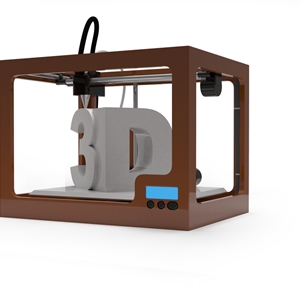
How intellectual property affects 3D printing
August 4, 2014 6:14 pm Leave your thoughts
When it comes to copyrighted material, objects are no exception. 3D printing technology allows users to create objects by printing them. This technology, which was previously primarily used by engineers, has become available for consumer use in recent years. As more companies and individuals are able to use 3D printers, it has opened the door to the possibility that they could be used to create objects that are in violation of copyright.
3D printers present an issue for intellectual property rights because of the ease by which they allow users to create objects. By using a 3D printer, it could be possible to distribute copyrighted objects that would be difficult to trace. The issue of copyright infringement as it relates to 3D printing was recently discussed in an article for ZDNet, which notes that because 3D printing has not been around for a long time, a clear process for handling infringement associated with it has not yet been established.
The article explains that in the event that a 3D printer was used to violate copyright, it is unclear where liability would fall. It is suggested that several parties could be liable, from the party responsible for creating the printing, to the manufacturer of the printer itself. Since this area is still developing, it is important for companies using this technology to be aware of the potential implications of using it before bringing a product to market.
While the future of 3D printing and copyright law may not be set in stone, it highlights the importance of taking the steps to ensure intellectual property protection. Organizations in the Phoenix, AZ area can consult a small business attorney to learn more about intellectual property law.
Categorised in: Intellectual Property Law
This post was written by




